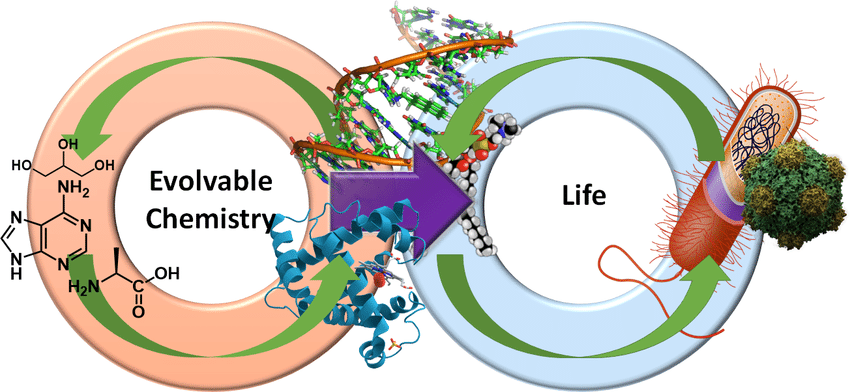In this letter, Mark Langabeer (Hastings and Rye Labour Party member) sets out his materialist view on the origin of life and the evolutionary process.
***
As a child and early teens, I believed in an afterlife. God had created all living creatures and this was the case since the beginning of time. This is hardly surprising given that most people were either religious with a small ‘r’ or agnostic. Religious Instruction, later called education, was mandatory at school and only in later years was there any study of Darwinian thought. While Church-going has declined, many still believe in some form of divine being.
Darwin never actually commented on the origins of life. It’s believed that he avoided this question because there was no evidence available. During the 20th century, a number of pioneering scientists emerged, such as the Soviet biochemist A I Oparin and the British socialist J D Bernal.
Oparin explained that life had neither arisen spontaneously nor existed eternally. It was a result of a long evolution of matter. His theory was that hydrocarbons over a period of hundreds of million years formed amino acids that organised themselves in a way that formed the first living cells. Oparin explains that there was a process of chemical evolution in the oceans that resulted in more and more complex substances. He demonstrated that this natural process was heading towards living cells. As Frederick Engels had stated in the 19th century, living matter had evolved from non-living matter.
Darwin argued that a natural process could explain the development of the various species. Over many generations, large changes in the average characteristics of a species can occur. At a certain point, the divergence is so great that they become a different species. Darwin knew that individuals within a species could transmit to their offspring those characteristics that made them different, but he had no idea how inheritance happened.
Genetics as a scientific discipline is inseparable from Darwin’s theories of species. It is the basis of biological science and often directs work in all sorts of specialised fields. Darwin wrote that man is constructed on the same model as other mammals. Human blood groups are found in chimps. It led to another British socialist and scientist, JBS Haldane, to comment that it may be no more dangerous to have a blood transfusion from a chimp, than from your own brother.

Since Darwin’s time there have been major advances in the study of fossils. Among these fossils, many millions of extinct species have been identified. The main value of a fossil record is that it can be dated. One of the surprises in the fossil record is the speed that life developed on earth.
The first signs of life began at around 3.7 billion years ago. It indicates that life began soon after the planet cooled off enough for solid rocks to form. Life on earth slowed down in the next two or three billion years. Then at around 570 million years ago, all kinds of life emerged. It was the beginnings of sexual reproduction and the upsurge of diversity among organisms and natural selection.
Studies suggest that nearly 99% of the DNA in humans matches that of chimps. The emotional appeal of creationists who claim that evolutionist thinking recognises no differences between apes and humans is a powerful one. There are qualitative differences that set us apart from the rest of the animal world. It is usually accepted that a key difference is the size of the brain.
One palaeontologist, the late Stephen Jay Gould, explains that the nineteenth century produced a brilliant expose from a source that will no doubt surprise readers – Frederick Engels. In an essay entitled The Part Played by Labour in the Transition from Ape to Man, Engels explained that it was upright posture that was the decisive step in transition. It freed the hands, which over time meant that tools could be fashioned to meet our needs.
We learn from the works of Darwin, Engels, Oparin and Einstein. The world exists as matter in motion. Its laws are knowable and we are able to use them to satisfy our basic needs. The process of acquiring knowledge is limitless. The material world is infinitely complex and the more we probe into its mysteries, the more we uncover. The notion of absolute knowledge and truths is a characteristic of religious thought, and, as such, a self- deception.



